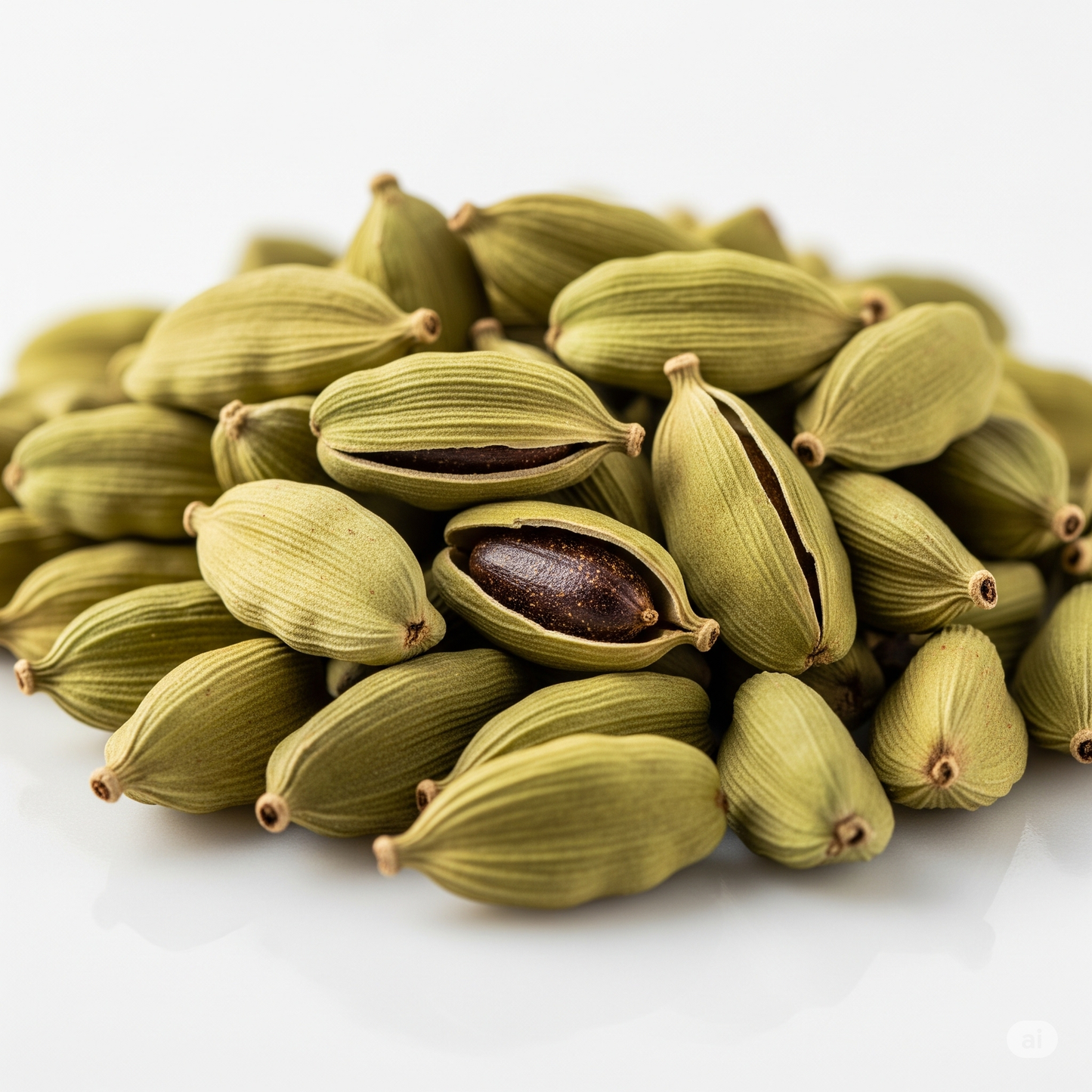Wadi
Cardamom
Cardamom
Couldn't load pickup availability
Primary Uses:
1. Culinary Uses:
- In Indian cuisine, it is used in curries, rice dishes, and desserts.
- In Scandinavian cuisine, it is used in sweet breads and pastries.
- In Middle Eastern cuisine, it is used in coffee and tea.
2. Flavoring Uses:
- In baking, it is used in cakes, cookies, and breads.
- In cocktails, it is used as a flavoring agent.
- In savory dishes, it is used to add a warm, spicy flavor.
3. Aroma Uses:
- In perfumes and fragrances, it is used as a top note.
- In aromatherapy, it is used to relieve stress and anxiety.
- In candles and air fresheners, it is used to add a warm, spicy scent.
Other Uses:
1. Culinary garnish - Cardamom is commonly used as a spice in cooking, particularly in Indian and Middle Eastern cuisine. It is used to flavor dishes such as curries, rice dishes, and desserts.
2. Medicinal uses - Cardamom has been used in traditional medicine to treat a variety of ailments, including digestive issues, respiratory problems, and infections. It is also believed to have anti-inflammatory and antioxidant properties.
3. Religious uses - Cardamom is considered a sacred herb in Hinduism and is often used in religious ceremonies and rituals.
4. Ornamental uses - Cardamom plants are sometimes grown for their attractive foliage and flowers, which can be used to decorate gardens and indoor spaces.
5. Insect repellent - Cardamom oil is sometimes used as a natural insect repellent, particularly against mosquitoes.
6. Dyeing agent - Cardamom seeds can be used to dye fabrics and other materials a yellowish-brown color.
7. Folklore uses - In some cultures, cardamom is believed to have magical properties and is used in spells and rituals for love, prosperity, and protection.
Caution:
1. Allergic reactions: Some people may be allergic to cardamom, which can cause skin rashes, hives, and difficulty breathing.
2. Interference with medications: Cardamom may interact with certain medications, such as blood thinners, and affect their effectiveness.
3. Gastrointestinal issues: Consuming too much cardamom can cause gastrointestinal issues such as nausea, vomiting, and diarrhea.
4. High blood pressure: Cardamom can increase blood pressure in some people, which can be dangerous for those with hypertension.
5. Cost: Cardamom is a relatively expensive spice, which may make it difficult for some people to afford or use regularly.
Share


